Azuki beans are filled with vitamin B1, iron, protein, folic acid and polyphenols, among other highly nutritious substances. We select the finest beans from Hokkaido-grown azuki, known for their distinctive flavor, lustrous color and pleasant texture. Azuki beans have long been integral to the Japanese diet and are a defining ingredient in wagashi, with most varieties featuring azuki beans in the form of bean paste. Their reddish color has been considered auspicious since ancient times, believed to be effective in warding off disaster and disease.
Ingredients
Toraya wagashi are made with all-natural, plant-based ingredients (with the exception of eggs in some items), making them a wholesome choice for sweets lovers. We use premium traditional ingredients secured through close ties with producers and accentuate their natural flavors in creations made without preservatives or artificial flavorings.
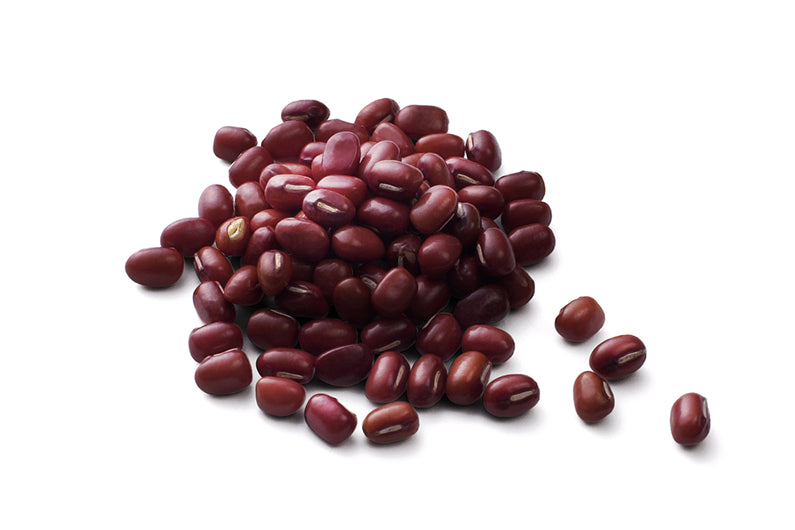
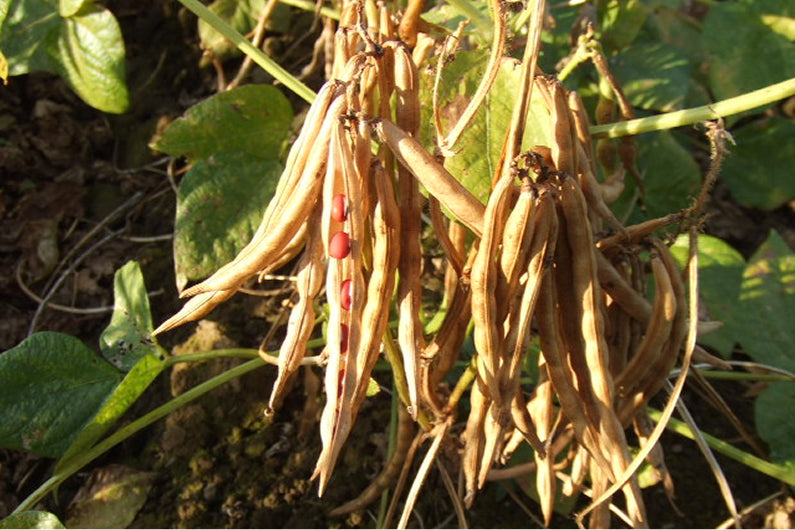
Azuki beans
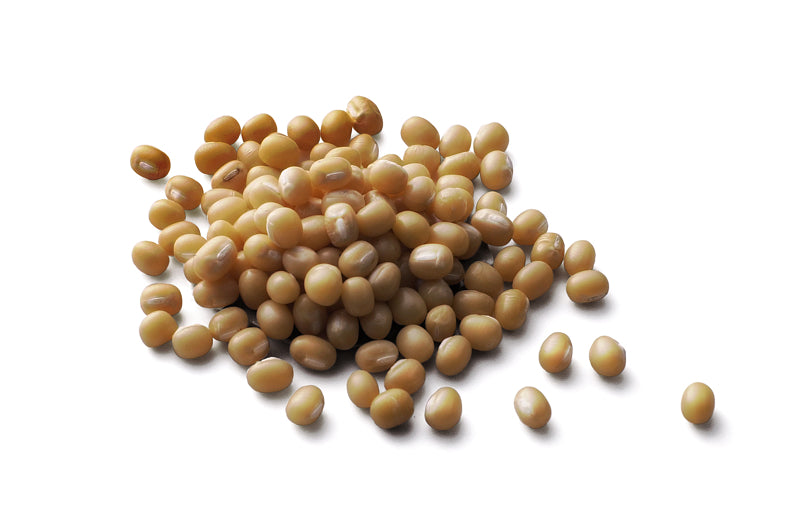
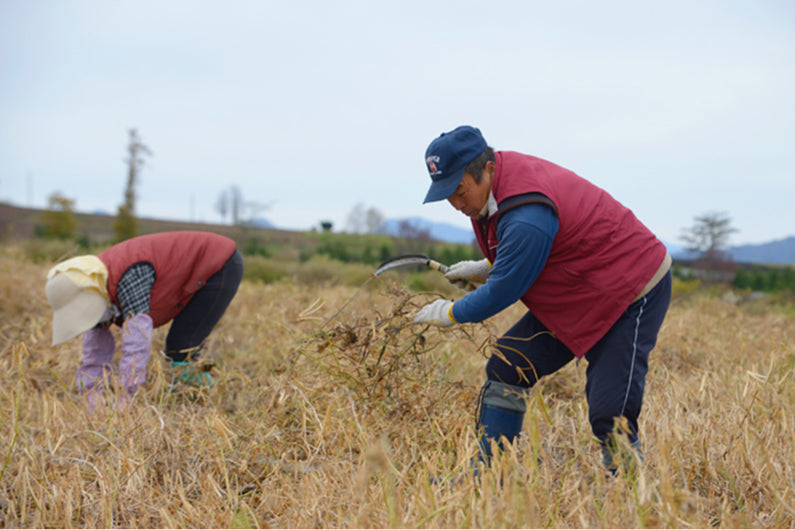
White azuki beans
White azuki beans are a premium ingredient in wagashi. Quantities are limited, since most of the cultivation process, from planting to harvesting, is carried out by hand. At Toraya, we use our own proprietary cultivar, grown under exclusive contract since 1927. An essential ingredient in white bean paste, the beans are light and delicate in flavor.
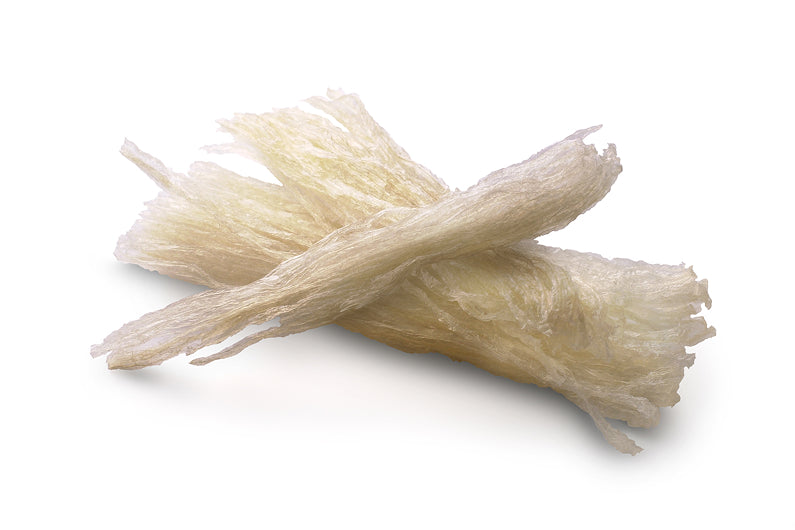
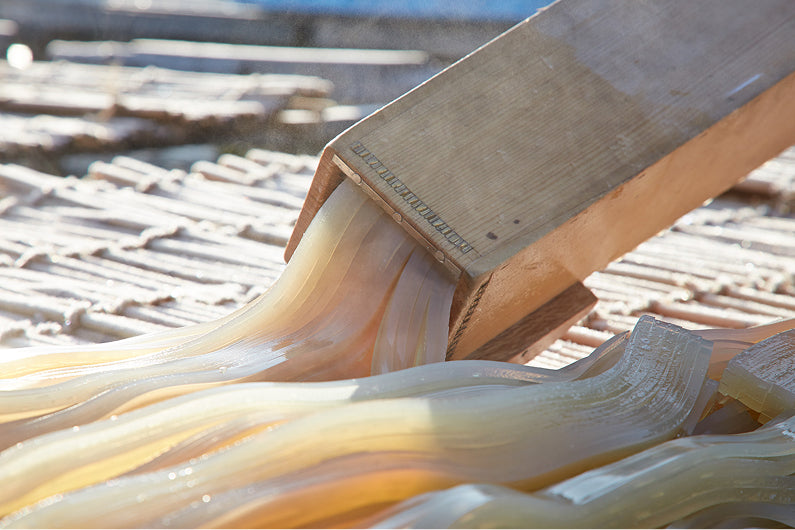
Kanten (Agar)
Kanten (agar) is a traditional Japanese product made from seaweed varieties, such as red algae (tengusa). It is used as a gelling agent and is considered a health food ingredient because of its high dietary fiber content. Unlike gelatin, mixtures set with kanten will not melt even at room temperature. At Toraya, we use kanten made according to traditional methods and sourced exclusively from producers in Nagano and Gifu prefectures.
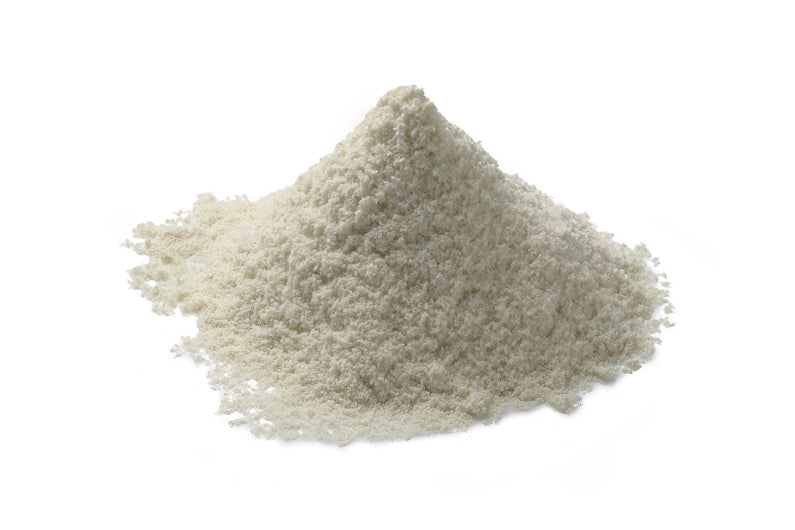
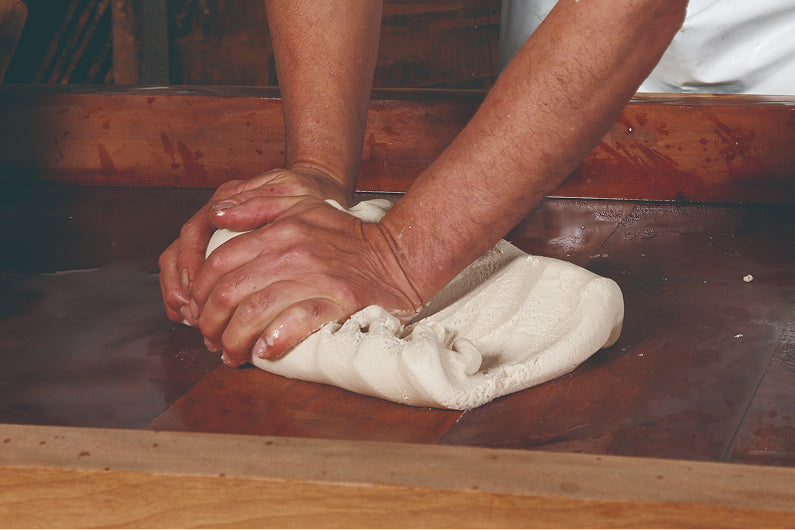
Wasambon sugar
Wasambon sugar is a Japanese sugar still handmade according to traditional methods. The manual kneading and refining process yields the sugar's characteristic fine grains, smooth melt-in-the-mouth texture, and rich yet clean aftertaste. Found in various wagashi, it is the essential ingredient in dried confections known as higashi.
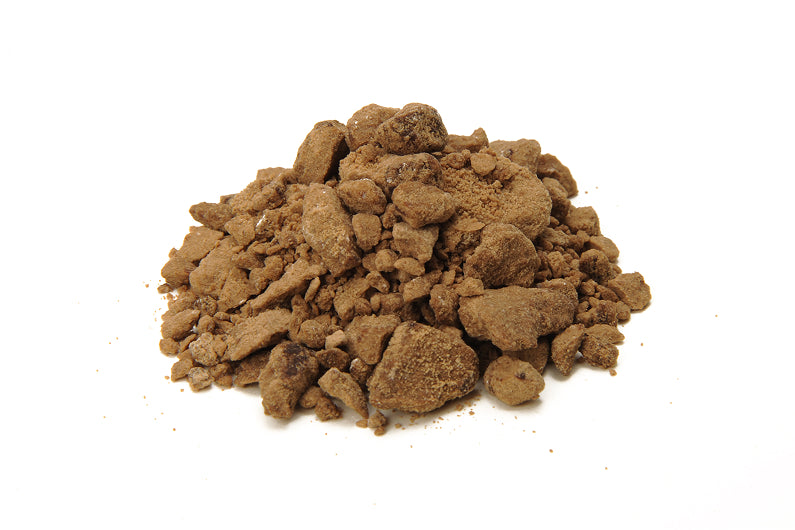
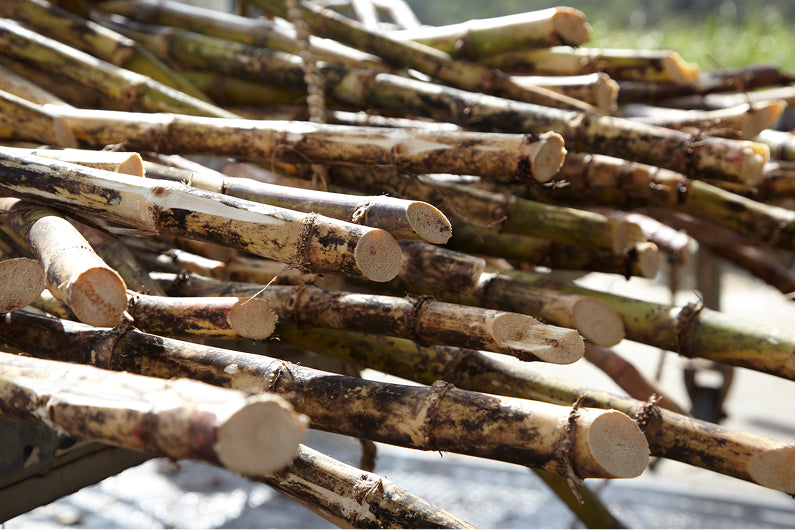
Unrefined brown sugar
Rich in minerals and with a robust, full-bodied flavor, unrefined brown sugar is a minimally processed blackish-brown sugar made from sugarcane. At Toraya, we use unrefined brown sugar from the Okinawan island of Iriomote-jima in sweets such as Omokage (brown sugar) yokan.
Movie
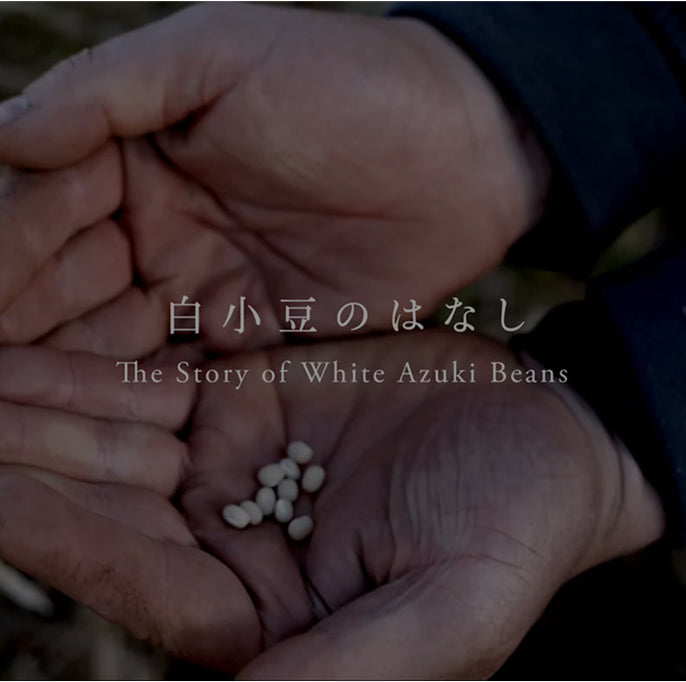
The Story of White Azuki Beans
(14:24)
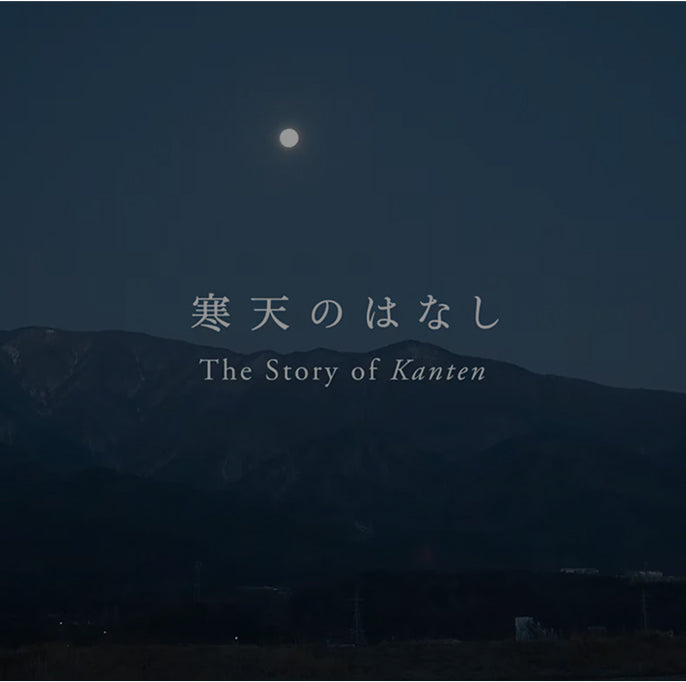
The Story of Kanten
(17:47)